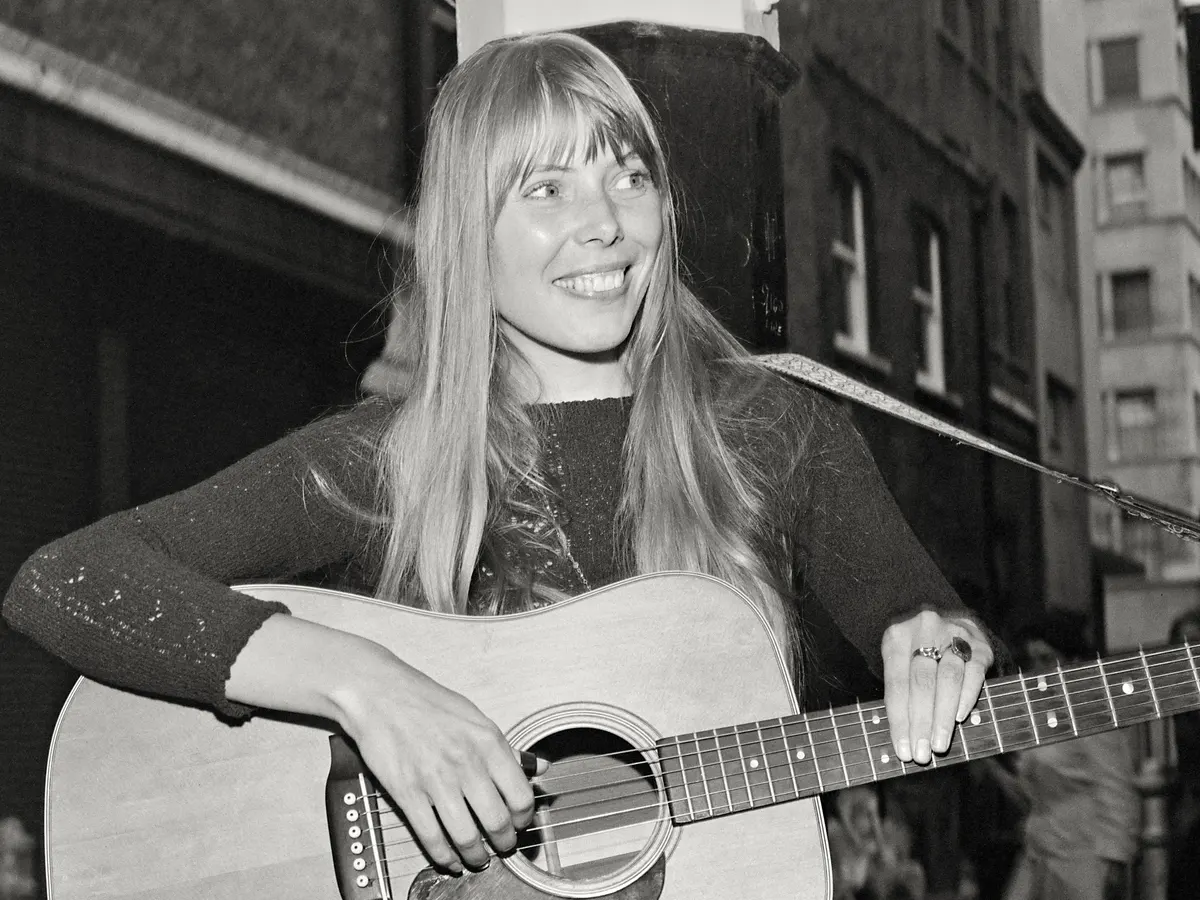In the realm of songwriting, it’s often considered an artistic expression rather than a competitive sport. Musicians, in their creative journey, aspire to compose songs that resonate with the masses, capturing fragments of their souls that can connect with people worldwide. Inspiration for these songs can emerge from various sources, and one such source for Joni Mitchell was her creative disagreement with fellow artist Neil Young.
As the late 1960s rolled on, Neil Young quickly emerged as one of the most sought-after solo artists of his generation. Transitioning from his time with Buffalo Springfield, Young embarked on a solo career, releasing albums like “Everybody Knows This Is Nowhere.” His talents captured the attention of the supergroup Crosby, Stills, and Nash, who invited him to join them for their second album, “Deja Vu.”
Despite the mild-mannered folk-rock style of the other three artists, Young brought a certain edginess that had been missing, transforming their rendition of Mitchell’s ‘Woodstock’ into a fierce rock anthem. Young, while still showcasing his acoustic guitar prowess, didn’t hold back when delivering emotionally charged ballads like ‘Sugar Mountain.’
‘Sugar Mountain,’ one of Young’s early ballads, tells the story of a young man imagining his transition into the next phase of life. He speaks of taking his first drag off a cigarette and leaving his hometown. Although the song suggests new beginnings, Young’s voice carries a subtle weariness, as if he realizes that the golden days of teenagehood will never return.
While Joni Mitchell admired Neil Young’s work, she had some reservations about the attitude conveyed in ‘Sugar Mountain.’ In response, she composed ‘The Circle Game,’ a song that reintroduced childlike innocence into the conversation. Young’s song focused on the inevitability of growing older and leaving ‘Sugar Mountain’ behind after the age of 20, while Mitchell’s response brimmed with optimism about the future.
In an interview, Mitchell explained the inspiration behind her song, saying, “Neil Young wrote this song called ‘Oh to live on sugar mountain,’ which lamented his lost youth. I thought, if life stops at 21, it’s a pretty bleak future. So, I wrote a song for him and myself to instill some hope. It’s called ‘The Circle Game’.”
Young’s song had a somewhat bleak conclusion, emphasizing the loss of youth, but Mitchell saw life’s various stages as a continuous circle. She believed that as individuals progress through life, subtle changes in their personalities lead them in different directions. While Mitchell was still spreading her wings as a songwriter, ‘The Circle Game’ became one of the standout tracks of her early career. It reminded her audience that growing up doesn’t mark the end of good times.
In conclusion, songwriting, despite its creative and emotional essence, is often marked by artists expressing their unique perspectives and even engaging in creative disagreements. Neil Young’s ‘Sugar Mountain’ and Joni Mitchell’s ‘The Circle Game’ are exemplary of how musicians can respond to one another through their compositions, each offering a distinct viewpoint on the journey of life.
